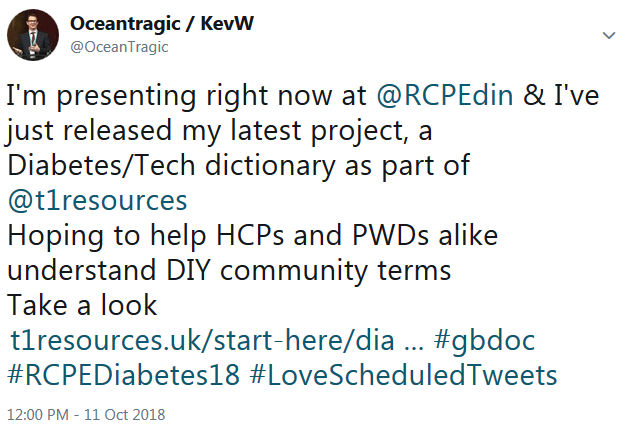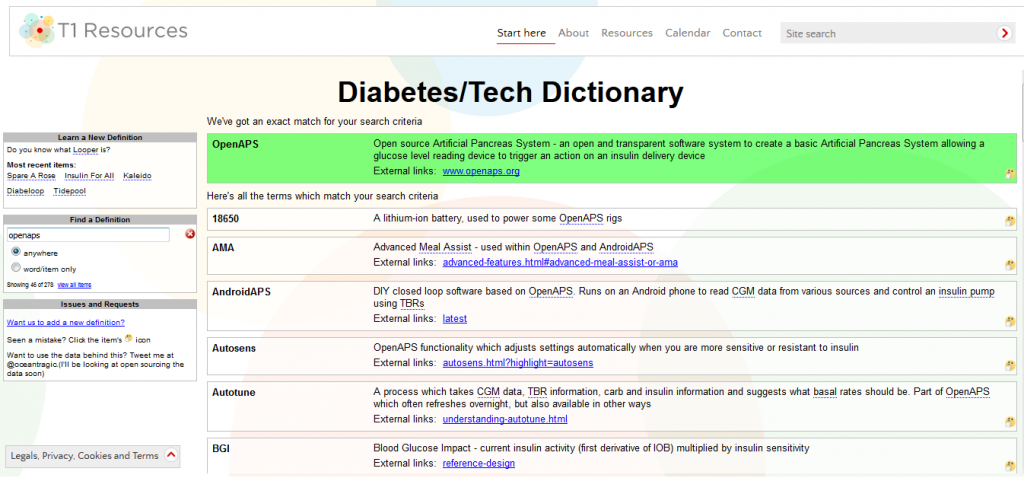It’s 6:30am and I’m awake now for the day, but I wasn’t woken up by any CGM remote monitoring alarms, nor clock alarms because I need to check Amy’s glucose levels, no, I’m just awake because it’s time to get ready for work.
Reflecting back to two years ago when I wrote The Nightscout and GCSE Game Plan it’s amazing what a change using a DIY closed-loop artificial pancreas system (DIYAPS) makes to all our lives. Amy’s currently using AndroidAPS, Dexcom G5 CGM and a DanaRS insulin pump.
Let’s do a comparison
Two years ago using only Nightscout remote monitoring I would set an alarm on each exam day around 5:30am to make sure Amy’s glucose levels were good and stable. One exam morning I was woken by a CGM alarm and this is what I saw:
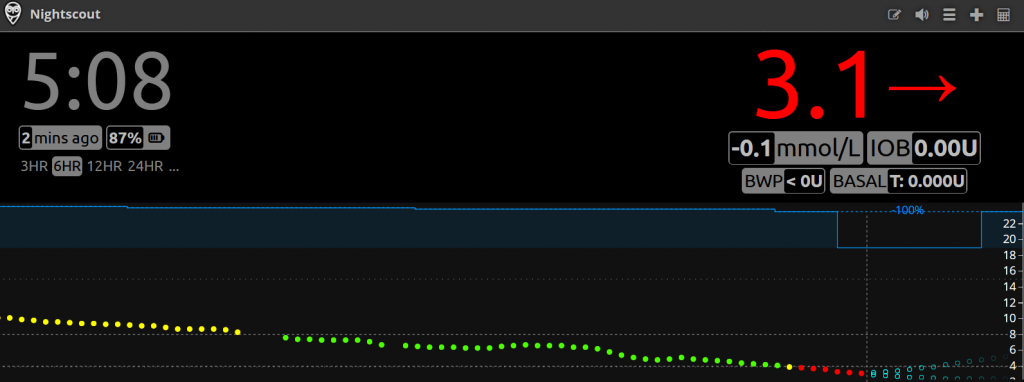
Roll forward to today, no alarms, no early wake up, life as ‘normal’ as it could be, and I woke up to see this:
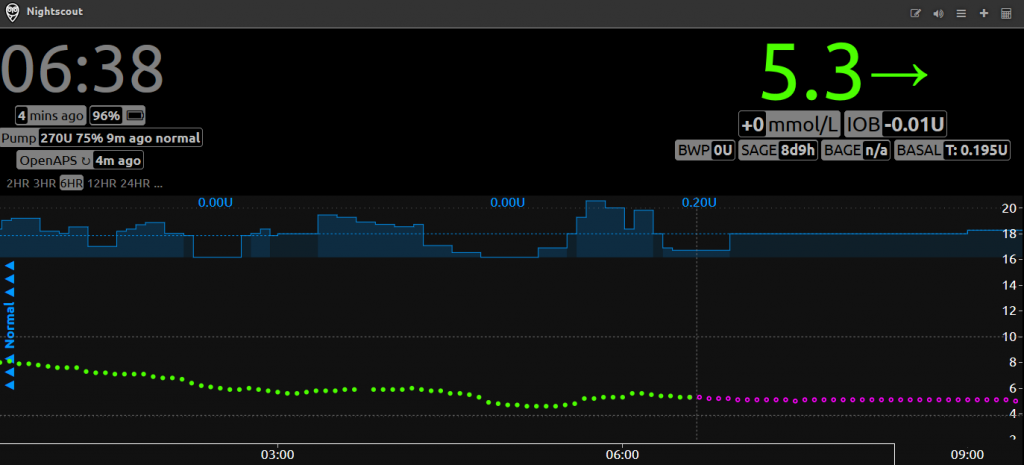
Amy’s current glucose target range is set as 5.3-5.5mmol. She’s woken bang on target, without alarms, wihout any checking or intervention by people, *just* FIFTY-EIGHT TBRs from AndroidAPS in the last 12 hours.
Priceless.
I almost need say nothing more at all, that picture conveys so much but it doesn’t tell you the full picture.
More than waking up on target
So looping makes sure she wakes up on target for each exam day but it’s so much more than that.
Amy has set her sights on studying medicine at university and becoming a Doctor, and whilst for this year no-one has offered her even an interview* she still needs to gain A or A* grades in her A Levels of Chemistry, Biology and Psychology. To do this is hard, damn hard and she’s been studying almost non-stop – hours every evening and most weekends – for two-years. For the last couple of months this has been ramped up and she barely has any free time.
Two years ago revision was just as full-on but it was broken up with hypos and hypers and occasionally a brain-fog which stopped revision in its tracks. Roll on to now, looping is keeping her levels as in-range as possible, and maximising the time allowed for decent revision which is absorbed.
Could it be any better?
Well, yes, it could.
Amy’s AndroidAPS DIY looping software runs on her phone, phones aren’t allowed in exam halls, so she cannot loop whilst doing the exams, some of which last many hours. She does of course start each exam perfectly in range (food consumption timing dependent of course).
This wouldn’t be any different if she used Loop as iPhones are required or OpenAPS where the software runs on a small computer, which also (probably) wouldn’t be allowed in the exam hall. If her looping software was on her pump then she would be able to loop all the way through the exams, so the Medtronic 670G would be a better option for exams.**
UPDATE:So after writing the paragraph above this morning quite a few people said that their child had been given ‘reasonable adjustments’ to loop for exams, it got me thinking but I was sure we’d asked and was told ‘no’. I was wrong. Amy went hypo in today’s exam and due to other issues her exam invigilator called me, so I took the opportunity to ask her about Amy looping if her phone was given to the invigilator within a clear case. The exam invigilator said that would be fine and spoke about there being lots of talk around subjects like this in the various online groups for exam invigilators. It turns out we’d never asked properly but from here on in Amy will be able to loop during her remaining A level exams. Lesson learned.
*which is a shame for a A grade student, top third clinical aptitude test score in the UK, national conference speaking, bags of life experience, diabetes/tech knowledge
** okay, Medtronic, I’ll give you that one, but just for exams only right.


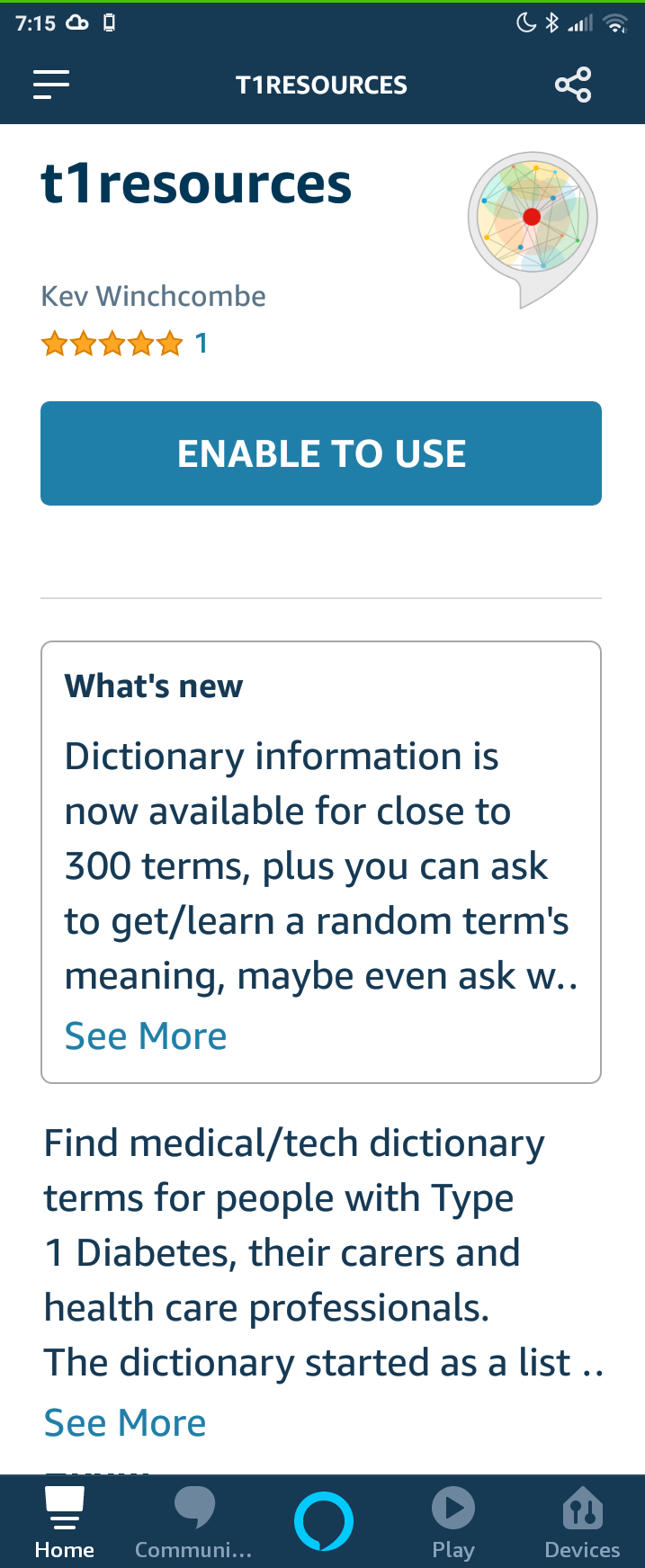 >Within you Amazon Alexa phone app:
>Within you Amazon Alexa phone app: